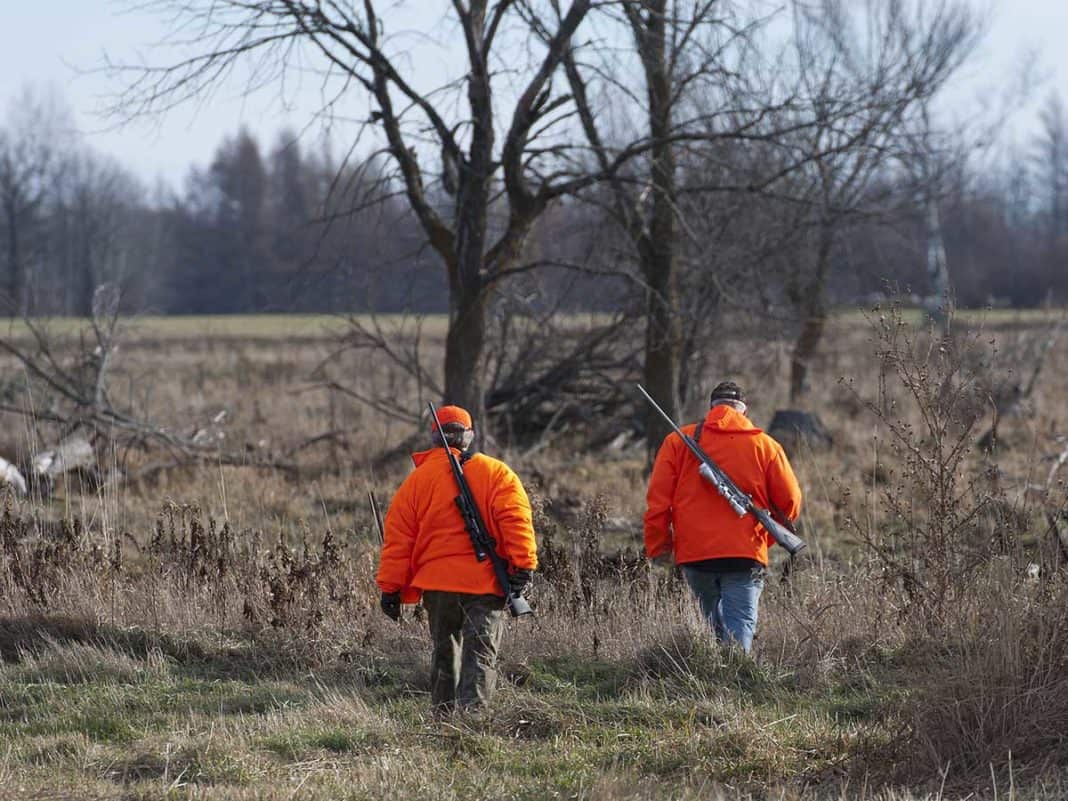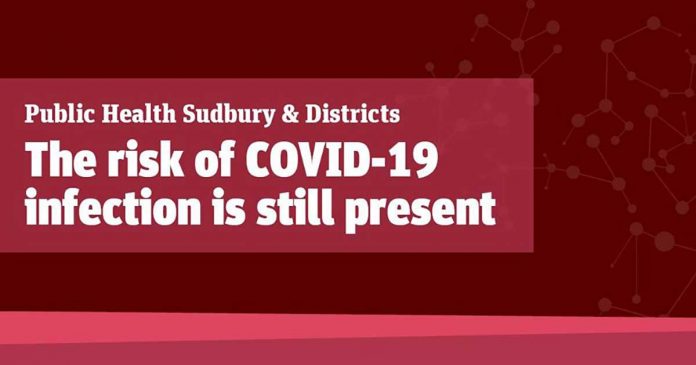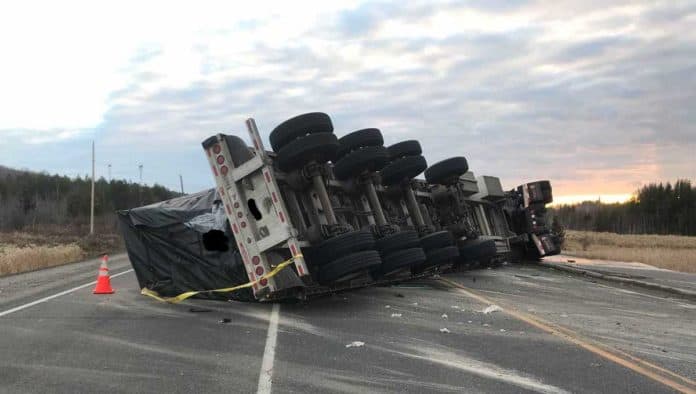Urges COVID-19 safety compliance
MANITOULIN – With Manitoulin’s rifle deer hunting week just days away, controlling the spread of COVID-19 is especially critical as large numbers of people are likely to come to the Island for the annual event and congregate in groups that could increase transmission risk.
“If you do choose to hunt, try to hunt as local as you possibly can. Our usual message of avoiding non-essential travel is still our recommendation,” said Natalie Philippe, public health nurse at Public Health Sudbury and Districts (PHSD), whose catchment area includes Manitoulin Island. “Of course, there are certain areas (like Manitoulin) where hunting is a favourite spot for some folks.”
PHSD maintains a frequently asked questions page on its website for easy access to COVID-19 health and safety answers on common topics. If one searches for ‘hunt’ on that page, they will find the question, ‘Can I go hunting during COVID-19?’
The answer, updated October 23, reads that hunting can indeed proceed as long as everyone taking part abides by public health regulations.
The health unit suggests the safest options are hunting alone or, at most, in pairs, while keeping at least two metres (six feet) of distance between the individuals.
“The safest way to get to a location is to travel by yourself in a vehicle. If you do have to travel with someone else, limiting the number of people per vehicle would be ideal—two would be our max recommendation, and wear a face covering to reduce the risk of exposure unless they’re members of the same household,” said Ms. Philippe.
She encouraged driving with windows rolled down to increase airflow and limiting travelling partners to those within the same household.
Maximum gathering limits in this district stand at 25 outdoors and 10 indoors. Although the likelihood of virus transmission is much lower when out on the land, hunting parties tend to congregate back in a hunt camp overnight. Because of this, it may be best to limit total group size—inside and out—to 10 people, the public health nurse said.
Hunting cabins are the principal source of risk from a public health perspective, said Ms. Philippe. People from different households should take extra care to maintain at least six feet of separation whenever they are together and be cognizant of high-touch surfaces such as kitchens, bathrooms, light switches and door handles. She stressed the importance of frequent hand-washing, especially before meals.
To help reduce the risk of virus transmission, the Township of Billings announced in late October an exception to its rules against staying in camping trailers within the municipality. Instead, it encouraged groups of hunters to bring them for cooking, sleeping and socializing to reduce close contact for this year only.
At mealtime, Ms. Philippe discouraged buffet-style dinners because of shared contact with the same utensils, especially because someone could be an asymptomatic carrier of the virus in the group.
As for what should happen if someone in the group begins to feel ill during the hunting trip, Ms. Philippe said it was important to have plans ready ahead of time.
“If you’re at a gathering and you’re starting to not feel well, immediately leave the inside if you’re in a cabin. You should plan ahead to have a place where someone can isolate and seek testing,” she said. “Anyone with even mild symptoms should not participate. The virus is impacting people in different ways with a variety of symptoms.”
With hordes of hunters arriving on Manitoulin from various parts of the province (some suggest that figure to be as high as 7,000), many Island businesses such as grocery stores and gas stations will have to take extra precautions to keep their staff and customers safe.
“In terms of employees, it’s the same things. We ask agencies to have a policy on requiring a face covering, except for people who have exemptions,” said Ms. Philippe. “Just make sure you’re using a fresh one that’s clean, that it does cover the nose and mouth so you’re comfortable and it is covering the airway throughout your workday.”
She emphasized the importance of frequent handwashing and disinfecting of shared surfaces.
For those people travelling to the Island from away, she recommended that they pack and bring food and other items they may need from home, in order to reduce their interactions with Islanders.
The Manitoulin COVID-19 Leadership Co-ordination Committee has not discouraged people from coming to the Island for the hunt season but urged anyone taking part to follow public health protocols.
“What the committee’s feeling is that instead of cancelling Halloween or the hunt season, which we can’t do anyway, that we need to promote everyone following proper protocols, things like washing your hands regularly, social distancing and using hand sanitizer,” said Patsy Corbiere, Ogimaa-kwe of Aundeck Omni Kaning and a member of the committee.
Government representatives have been treating the risks of the COVID-19 pandemic seriously. Enforcement officials will be monitoring behaviour closely to ensure people are following provincial regulations.
Ministry of Natural Resources and Forestry conservation officers have the ability to issue fines for people who are not following provincial rules, such as gathering size limits.
Public health guidelines could change between this story’s publication date and the end of the rifle season. Regularly check the PHSD website, phsd.ca, for the latest region-specific regulations pertaining to COVID-19.
This newspaper published a story to help hunters plan for a COVID-safe trip. Please consult the Haweater’s Guide of October 28 or search ‘COVID hunt’ at manitoulin.com and please see the ad on Page 14 of this newspaper.





